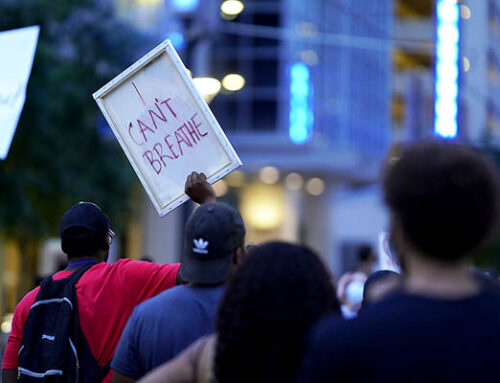Anyone who has watched a police procedural on American television is familiar with the Miranda warning, the ritualized litany by which individuals in police custody are informed of their Fifth and Sixth Amendment rights – specifically, of their right to silence during police interrogation and their right to legal counsel while being interrogated. In fact, after police and lawyers, actors may be among the professionals with the most day-to-day interaction with this piece of case law, in light of how often it appears in movies and television. However, this sort of passing familiarity doesn’t necessarily translate to an understanding of the importance of the rights it describes, how they apply to one’s own life, or the danger that can result from waiving those rights.
 This was clearly illustrated in the aftermath of the 2021 movie set shooting incident during the filming of the movie Rust in New Mexico, in which a gun being held as a prop by actor Alec Baldwin fired a projectile that killed cinematographer Halyna Hutchins and wounded director Joel Souza. During the initial police investigation of the incident, Baldwin asked if he was being charged with a crime. Police told him that he was not, and that the reading of his Miranda rights was “just a formality.” Accepting this, Baldwin went on to speak to police, while being recorded, without a lawyer, at length.
This was clearly illustrated in the aftermath of the 2021 movie set shooting incident during the filming of the movie Rust in New Mexico, in which a gun being held as a prop by actor Alec Baldwin fired a projectile that killed cinematographer Halyna Hutchins and wounded director Joel Souza. During the initial police investigation of the incident, Baldwin asked if he was being charged with a crime. Police told him that he was not, and that the reading of his Miranda rights was “just a formality.” Accepting this, Baldwin went on to speak to police, while being recorded, without a lawyer, at length.
For most innocent people who find themselves accused or suspected of a crime, the natural instinct is to explain oneself, to clear up whatever misunderstanding resulted in suspicion falling on them, and to help the police in getting their investigation on the right track to find the real criminals. This instinct, while very human and entirely reasonable, is not rewarded by the American criminal justice system. The assumption that “only guilty people have something to hide” and that innocent persons should cooperate with law enforcement without the need for a lawyer present does not reflect the way our legal system works. Too often, well-meaning people – convinced that their innocence means they don’t need legal representation – have found themselves charged with a crime with the content of their statements to the police used as evidence against them.
In their investigation of the movie set shooting, police assured Baldwin that he was not being charged, convinced him that he was not under suspicion, and persuaded him to speak with them openly and in detail, to the point of offering his own theories about events. However, what many people do not realize is that police are legally allowed to lie to the individuals they are interrogating. As author and law professor James Duane points out in his book, “You Have the Right to Remain Innocent,” when police interrogate you, they can lie about whether you are a suspect, whether they intend to pursue charges against you, whether your statements may help you, whether you are on the record, what crime they are investigating in the first place, what evidence they have against you, whether other witnesses have spoken with them, and the content of the statements of those witnesses.
In short, police have wide latitude to lie to you in order to trick or pressure you into saying something incriminating. Worse still, it doesn’t matter how much you say in your statement that supports your innocence; prosecutors can cherry-pick a single suspicious or incriminating comment from your statement to police, while defense attorneys have a much harder time introducing any exculpatory content from the same statement, due to hearsay laws. Nearly 30 percent of the 375 innocent people whose conviction of crimes were overturned by the Innocence Project through the use of DNA evidence since 1989 had been originally convicted partly due to false confessions. Research indicates that most false confessions result from interrogations lasting six hours or longer, and almost all involve police lying to suspects – with many also implying promises of leniency that lead the accused to think that giving up their right to silence is their only recourse.
In Baldwin’s case, his trust that he was not a suspect led to his lengthy police interviews, in which he told police that he was handed the gun by the film’s armorer, Hannah Gutierrez-Reed, who told him it was safe. He stated that, having never had a problem with her work in the past and not wanting to insult her, he declined to check the gun himself. As of January 18th, of this year, both Baldwin and Gutierrez-Reed face involuntary manslaughter charges, as prosecutors argue that Baldwin had a responsibility to check that his gun prop was safe – shocking many in the film industry, where this responsibility belongs to the crew, not the actors. In retrospect, Baldwin would have been better advised limiting his statement to, “I want a lawyer.”
Contact My Office Immediately
Retaining an experienced criminal defense attorney from the beginning of your case can make the difference in your criminal matter. I am a certified criminal trial attorney board certified by the New Jersey Supreme Court. If you are a family member were arrested for a criminal offense, contact me immediately so that I can review your charges from the very beginning. I can review your case and advise you as to all possible defenses to make sure that you are properly represented on your criminal charges. Please contact me now by email, by phoning 908.264.7701, or by completing the form to the right to schedule your complimentary 30-minute strategy session.







